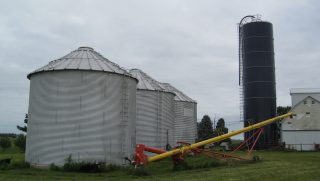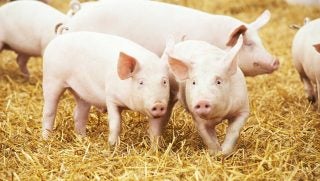Legislation making its way through the Washington state legislature would require dairy and fruit farmers to disclose to retailers whether they use slave labor on their farms.
Please take a minute to read that again, just in case you’re not completely confused or outraged.
The legislation was introduced by State Sen. Rebecca Saldaña. The bill would require farmers to report any incidents of slavery, peonage, and human trafficking to retailers with more than $200 million in global sales. The bill passed in the state senate. It now waits for the state house to take it up.
Now I’ll admit I’ve never been to Washington. Maybe they do things a little bit differently there than they do in Michigan and Indiana. But I hardly doubt it. In fact, I’m absolutely positive that they don’t. Because I have farmer friends from that part of the country, and no one has ever mentioned their slave labor.
So I got in touch with Tom Davis, Washington Farm Bureau’s director of government relations, and asked whether slave labor is a big deal there. Tom confirmed it isn’t. He told me that getting enough workers for fruit and dairy operations is an ongoing struggle. But Washington farmers rely on H-2A visas to meet those needs.
So why is the state legislature so concerned about slavery on Washington farms?
I reach out to Saldaña to get her perspective and understand why she felt this bill was necessary. But I never received a response.
That’s probably because Saldaña and her friends in the Washington legislature are busy working on other legislation that would devastate the state’s agriculture industry.
Bills have been introduced to adopt a carbon tax and increase the gas tax, which would raise the costs of producing all farm goods. The idea is to decrease carbon emissions and hit any products transported by trucks. But without giving farmers and businesses viable alternatives, it penalizes them for simply doing business.
Another bill proposes establishing state fees for businesses utilizing the federal temporary guest-worker program, which affects fruit and dairy farms hard. So now farmers trying to hire workers the legal way would be penalized. But what choice will they have when the entire state is experiencing worker shortages?
An environmental justice bill, also sponsored by Saldaña, would create a task force to develop strategies for businesses and farms to incorporate “environmental justice” into their responsibilities. The task force would use the precautionary principle, a regressive approach taken by many European countries. This task force could have the authority to summarily deny permits, or even issue violations giving rise to lawsuits.
Here’s what infuriates me. Farmers across the country are struggling right now. It’s not a secret. And it’s no different in Washington. But apparently the state legislature doesn’t give a damn. Instead of passing legislation to support farm families and make things a little easier, they’re doing the exact opposite. These bills stigmatize Washington farmers, make doing business more expensive, and threaten to tip the scales toward bankruptcy.
Tom told me all of this is weighing heavily on Washington farmers. “It shows a complete lack of understanding of what happens on a farm and the value we place on farm workers,” he said. “We can’t harvest the crops we grow here if we didn’t have quality farm workers. That’s why this is such an outrageous bills and shows a total lack of understanding of the state’s second largest industry.”
I don’t think it’s a stretch to say that Washington agriculture is under attack right now. I’m not sure how someone rationalizes that as a good approach to running a state. But that’s exactly the calculation that elected officials, like Saldaña, have made.
I feel awful for the family farmers who were literally just accused of being slave owners. But this is a strong reminder that agriculture must always be tuned into local, state, and federal government. And it’s so important to support the organizations who lobby on our behalf. Because without them, we might find ourselves regulated out of existence.
Amanda Zaluckyj blogs under the name The Farmer’s Daughter USA. Her goal is to promote farmers and tackle the misinformation swirling around the U.S. food industry.



